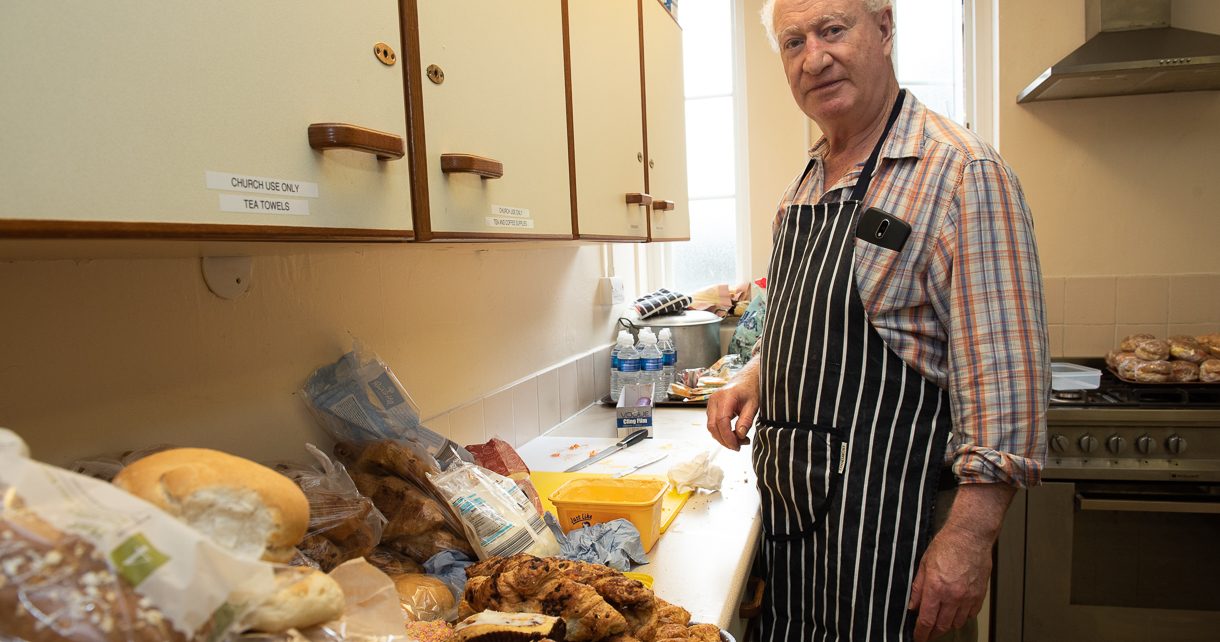Finely in the balance
What did last night’s Question Time with the “three leaders” tell us? Certainly that the public likes it political meat raw and there remains real anger out there at the “political class”.
Miliband handled the anger better, he got physically closer to the audience and showed little fear. Cameron did enough – he is a seasoned performer – to handle the anger, but stayed at a distance from the audience.
For Clegg it was the night of the long knives. Even former supporters plunged them in. Watch out for the “Clegg moment” on polling night, it may match the “Portillo moment” of 1997.
During the final week of a modern general election the news cycle gets shorter and shorter. The shelf life of stories diminished. So did anything lasting come out of Question Time?
Cameron rattled
Cameron was rattled by the audience probing on Tory plans to cut tax credits, disability payments and child benefit to millions of people to find the £12bn of welfare cuts he has promised. He became the man with the long-term plan, who now didn’t have one.
He had chance after chance to make clear he would not be making the cuts. Cameron missed every chance, choosing to duck and dive and get off topic as quickly as he could.
He sounded like the shoplifter who, once he was nabbed, thought it sounded plausible to say he wasn’t stealing the clothes, said he was just taking them home to try on. The audience did not swallow it and Miliband said these issues were now on the ballot paper on Thursday.
And Labour has clearly clicked with voters over the impact of austerity on the living standards of ordinary people, zero hours contracts and the low wage economy propping up badly paying employers with in-work benefits. His attack on employers who exploited immigrant workers to drive down pay also hit a chord.
Labour has work to do on the economy. It has to get across the impact on borrowing and the deficit of the US banks crashing the world economy in 2007. Labour had our economy emerging from that car crash in 2010 only for coalition austerity and cuts setting us back three years. Far from a plan that is working, the coalition now has even our low levels of economic growth faltering and deflation looming.
Hung parliament?
The audience reaction suggested they were more comfortable with a hung parliament than the Tory papers would have us believe. In fact they expected it and Cameron faced some scepticism about still fighting for a Tory majority.
The current polls (and they may change) suggest neither Labour nor the Tories will have an overall majority. That leaves either minority government, a pact or deals, or coalition.
The polls point to the two main parties having anything between 255 and 290 seats each, the SNP perhaps 50, Lib Dems, perhaps 30 with the â€others’ making up around 25 seats between them. But don’t bet your house on the polls and a “uniform swing”.
Â
That’s because there are very different election battles being fought in all parts of the UK. The south west, for example, is predominantly a Tory-Lib Dem battle with the Tories leading. In Scotland it is SNP-Labour, with the SNP currently leading. London is expected to go strongly Labour.
There is still a week to go. Still time for change, for attitudes to harden for or against any, some or all of the parties.
Picking political partners, building and breaking alliances, may take several weeks. But what do we know from Question Time?
The Tories will only enter a coalition with a party that backs an in-out EU referendum. So that is UKIP. Their decision will be based on compatibility of policy.
Labour will not cut a deal with the SNP and will not “barter” its manifesto. Its decision will be based on compatibility of policy.
The Lib Dems, are all over the place. Clegg says he will go with the party with the most seats and the most votes. Anyone who has done GCSE politics knows that is not always the same thing.
And he seems to forget that the sitting Prime Minister – Cameron – has first go at forming a government whether he has the majority of seats or not. For the Lib Dems it’s not about principles or policy compatibility, it’s about numbers.
Â
So we’re into the last week – what can we expect? From now on the politicians will see fear in each handful of polls as we run in to next Thursday. The Tory supporting anti-Labour media pack will go into overdrive. Nick Clegg might need a new title by Friday morning. Lord Clegg of Tuition Fees might be best.
And who runs the country is still very much finely in the balance. Cameron showed last night that decision might be make or break for millions of families.
 Like
Like Follow
Follow


